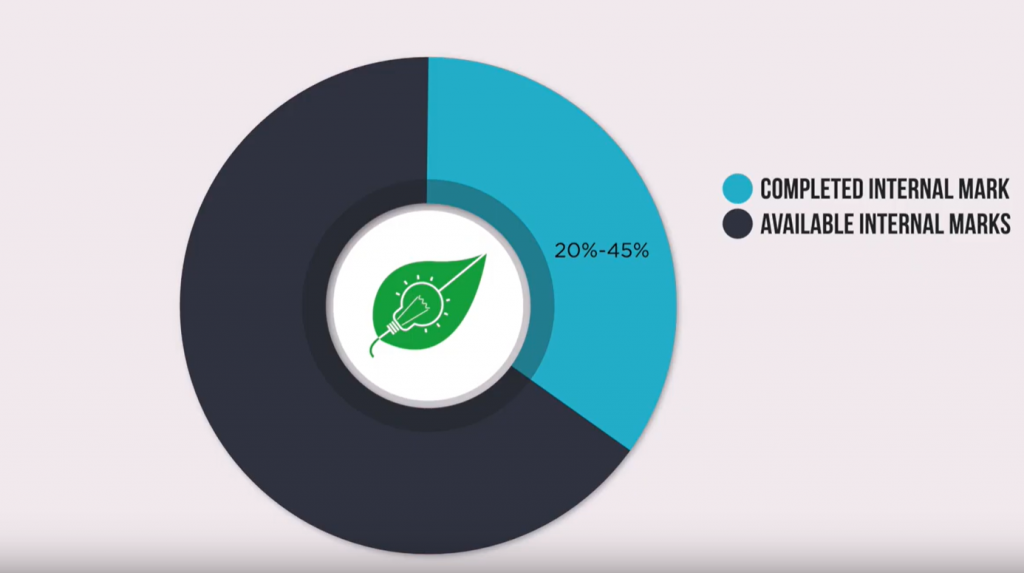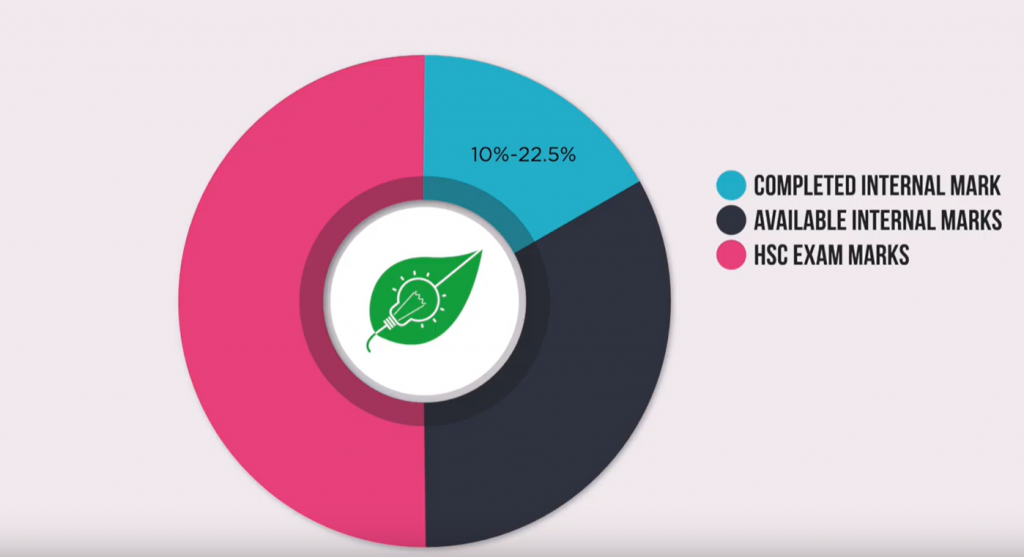Worried about how the Coronavirus will impact your HSC?
Maybe you’re thinking about what will happen to your assessments, exams, uni admissions or ATAR?
We’ve answered the most frequently asked questions about how the Coronavirus will impact your HSC to get you in the loop.
Read on below!
Q1. Is the HSC still happening?
Q2. Will my assessment weightings change?
Q3. Will my in-class assessment formats change?
Q4. Will I have to re-sit Year 12?
Q5. Will I get an ATAR?
Q6. If I don’t sit the HSC exams because they get cancelled, how can they still work out my ATAR?
Q7. Will my Year 11 marks count towards my ATAR?
Q8. Can I apply for special consideration?
Q9. Will university application procedures change?
Q1. Is the HSC still happening?
NESA has announced that the HSC will continue.
They have put in place a COVID-19 Response Committee which meets weekly to respond to developments as they come…
They released the following statement in response to the Coronavirus impact, “you will be able to get a HSC certificate this year, and that the certificate will facilitate access to university, further education and employment, as it has for students over the past 50 years.”
This means that for right now the HSC is continuing, but depending on further lockdowns, and the length of these lockdowns, they may have to cancel or change things considerably.
Specifically, NESA has given principals or system authorities the power to make decisions about the number and weighting of HSC formal assessment tasks for their school in 2020.
Q2. Will my assessment weightings change?
Yes, most likely, but this will depend on your school and how they handle it.
Assessment weightings may change because exams have had to be cancelled as a result of school closures and social distancing regulations.
You would have completed at least 1 assessment at this point, in either Term 4 of 2019 or Term 1 of 2020 that was worth between 20 – 25% of your internal mark. You may have completed a second assessment towards the end of Term 1 that was also worth between 20 – 25% of your internal mark.
This means most students have completed 20-45% of their internal marks available, like below:
However, HSC Exams make up 50% of your HSC mark, with your internal marks making up the other 50%. If we take into account that your internal HSC marks only make up 50% of your overall HSC mark, you’ve only completed 10-22.5% of your overall HSC marks.
This means you still have 80-90% of your total HSC marks still up for grabs!
This gets complicated if your assessments get cancelled, which means the weighting for your next assessment will be much higher. If your assessments for Term 1 and Term 2 have been cancelled, then your Trials could be worth up to 80% of your internal mark (or 40% of your overall HSC mark!) to make up for the lost weighting in cancelled assessments.
Q3. Will my in-class assessment formats change?
Yes, however this will depend on whether schools remain closed and at home learning occurs.
As a result of schools closures and schools following social distancing measures during the Coronavirus pandemic, it will not be possible to undertake an exam.
For example, if you had an exam scheduled, it’s more than likely your exam is now a:
- Take-home exam
- Multimodal/video submission
- Assessment or report submission
In NSW, the mandatory performance exam in Drama and ensemble performance exam in Music Extension have been cancelled and mandatory work placement for vocational education and training is no longer required. It is more than likely these assessments tasks will now change.
A COVID-19 committee made up of education officials in the state will be discussing what will happen to major projects due as part of the HSC for Visual Arts, Design and Tech, Industrial Technology, Textiles and Design, English Extension 2, and Society and Culture.
For science, practical exams may now be a hand-in report where you are provided with secondary data and required to perform the analysis, graphing or background theory yourself. You could still be assessed on things like drawing graphs using tabulated data which is provided via online systems.
Q4. Will I have to re-sit Year 12?
No, the Federal Education Minister has made this very clear.
The Federal Education Minister announced that “there will be no year 13, there will be no mass repeating. You will get your leaving certificate this year.”
The Commonwealth and states have agreed that all Year 12 students will finish high school this year despite the Coronavirus pandemic. You can read more about this here.
It wouldn’t be practical as you’d still have Years 7-11 coming through the system and transitioning into a new year next year, as well as the old and new Year 12 cohorts. There wouldn’t be enough teachers to teach an entire new grade (as you’d be Year 13!)
Q5. Will I get an ATAR?
Yes!
The Federal Education Minister announced that “every year 12 student will get an ATAR for 2020.”
This is because:
- Universities will still need to find a way to identify who they accept into their specific courses.
- The ATAR existed to enable them to be able to identify which students they should take into limited spaces in key courses.
- Given the ATAR is a national system, it’s likely it will continue to be used, but with modifications given the circumstances.
Q6. If I don’t sit the HSC exams because they get cancelled, how can they still work out my ATAR?
Different options exist that NESA or UAC may use.
NESA may only use your internal marks and then look at historical data for how your school performs, and use this to then moderate internal results between schools.
These internal marks may be Year 11 results (as they have a complete year of data), or Year 12 results (up until a certain point). This will of course depend on the extent to which Term 2 and Term 3 are impacted by COVID-19.
Most likely, they would use Year 12 results, as they have given schools flexibility in how to handle these.
The challenge is that HSC Trials may not be able to be sat in the traditional format of an exam environment. This may result in the format of Trials changing (from sit in exams, to take home exams) so that schools can complete internal assessments to ensure that UAC and NESA can use this Year 12 internal data to still generate ATAR results.
A little more left field, and less likely, is that they may use a system similar to what QLD used to use, called the OP System. Students would sit an external exam – a core skills test, and this would be used to then moderate internal results. This would need to be developed very quickly, and rolled out digitally for online testing. This makes the OP System very unlikely it would occur.
Q7. Will my Year 11 marks count towards my ATAR?
Possibly, but unlikely.
There are two situations this could occur:
1. If ATAR isn’t provided and uni entry is based on subject specific performance or application. The university may required Year 11 results.
2. If ATAR is being calculated without external HSC results to moderate internal school results, and the Trials were unable to be sat, requiring Year 11 results to be included in any ATAR calculation.
Q8. Can I apply for special consideration?
Yes, you can via the NESA website.
NESA has released the following statement, “If you get sick, your school and NESA have provisions to ensure you are not disadvantaged.”
Although it is unclear whether this refers to a COVID-19 related sickness or not, and where you can apply for these specific provisions, you can still use the general illness and misadventure form here.
The National Education Council is also discussing the possibility of concessions being made for students who struggle at home such as those who don’t have access to technology for online learning.
Q9. Will university application procedures change?
Most likely.
The State and Federal Education Ministers are discussing changing university application procedures given the impact of the Coronavirus on the HSC.
Universities are looking at introducing aptitude tests, bridging courses and the consideration of Year 11 marks.
Macquarie University has announced that they will be considering Year 11 marks when accepting students into their courses. Macquarie had two pre-existing early entry schemes based on Year 11 marks, which had a limited intake of students – however there will now be no cap on these numbers to encourage domestic students to enrol.
Universities Australia CEO, Catriona Jackson said universities may consider extracurricular work, Year 11 work, as well as Year 12 assessments.
The University of Western Australia has already announced that it is offering two new entrance pathways for potential 2021 students into its main undergraduate degrees. Beyond the normal Australian tertiary admission rank, UWA said it would also admit students on the basis of a predicted ATAR calculated using a student’s Year 11 results as well as a special tertiary admissions test.
Universities Australia, the peak body for the tertiary sector, said all universities were developing “contingency plans” in case there was widespread disruption to admissions.
Looking for some online tutoring?
We have an incredible team of tutors and mentors who can provide live online tutoring.
We pair you with a fantastic tutor who will tutor you via video with an interactive whiteboard PLUS give you digital access to our world class resources so that you’re well prepared!
We’ve supported over 5,000 students over the last 10 years, and on average our students score mark improvements of over 19%!
To find out more and get started with an inspirational HSC tutor and mentor, get in touch today or give us a ring on 1300 267 888!




